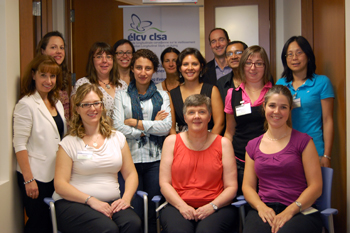Aging well

Canadians are living longer than ever before, and the result will be an unprecedented shift in demographics as the number of over-65s skyrockets. The Canadian Longitudinal Study on Aging (CLSA) is investigating the implications of this shift. “We need to know more about how people age,” says CLSA Co-principal Investigator Dr. Christina Wolfson, epidemiologist and Scientist in Health Outcomes at the Research Institute of the McGill University Health Centre (RI-MUHC).
“For example, we want to know why some people in their late 70s and 80s remain vigorous while others become frail by 65,” says Dr. Wolfson. “We also need data on how people cope with the challenges of aging, such as retirement. The CLSA is the first major Canadian study to look at what influences the diseases and disabilities people develop and the interactions between biological, psychological, social and lifestyle factors.”
The study, the largest of its kind ever done in Canada, will follow 50,000 people between ages 45 and 85 for 20 years. Twenty thousand members of the Tracking Cohort, will be interviewed by telephone every three years and 30,000 members of the Comprehensive Cohort will receive an in home interview and a detailed physical assessment at one of 11 data collection sites across the country every three years thereafter. The RI-MUHC is home to one of the data collection sites and will assess 3,000 participants.
The study is urgently needed, because current policies on aging and projections about health care utilization are based on previous studies of aging. However, Baby Boomers are very different than their parents. For instance, because they had fewer children, and those children are likely to live further away, many will have less family support than previous generations as they age.
Data from the study will be available for researchers as early as 2014. “Anyone with a legitimate interest can apply to use the data and the CLSA will carefully review all applications,” explains Dr. Wolfson. “The study is for the benefit of all Canadians.”
